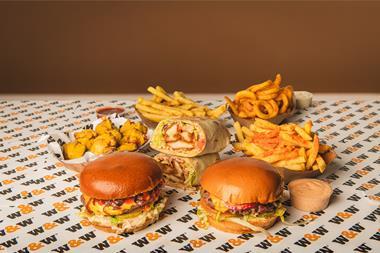It's said that interviewers make up their minds in the first three minutes. Those crucial first impressions are doing all the work, so manage them well, says Simon Howard
How many times have you heard it? "I knew from the moment I sat down that I wasn't going to get the job." You've felt it, I've felt it, and interviewers even admit to it: They make up their minds in the first three minutes and then spend the rest of the time justifying their initial impressions.
So rather than pretend that's not the case and roll out all the politically correct personnel twaddle about objective questioning and structured interviews, let's just look at the human angle and wonder why interviewers might make up their minds so quickly.
Who will you see?
For a start, you've got to remember the interview starts a long time before you sit down with the interviewer and because presentation is all, how you dress gives out the first loud signals. It's a good tip to get a pen picture of who'll be interviewing you so you'd do worse than ring their receptionist or secretary and ask for opinion and advice, because you need to get the look right. If you're going to be interviewed by Virgin don't go in looking like a Mormon, and similarly if there's a stereotype for what you should look like, don't buck it.
Be careful, too, as you approach the interview venue, think about how you walk into the building, because that is all about how you are feeling inside. It's amazing how many people dither or just don't look organised and composed when they're walking in for an interview. That sort of hesitation will have an effect on your confidence level.
From the moment you cross the threshold, think about stage managing your performance. So when you get into reception, don't sit down, even if offered. There are two reasons for this. First if you are coming up from a seated position to say hello you are at a disadvantage hardly a great first impression.
Second, the chances are you'll have to rearrange your dress, because one way or another clothes get heaped together when you're seated.
Next, always remember to carry papers or briefcase in your left hand you then won't have to switch hands and can offer a dry hand. At whichever point you meet your interviewer you must also make the right impression with the right handshake and right' means that your pressure should match theirs.
After you aaaargh!
At some point you will have to negotiate a doorway which is a real opportunity for dithering. Who goes first? The guest or the host? Interviewer or interviewee? What if the interviewer is female and the interviewee male? A hard one to call, probably best to let the interviewer take the lead, but don't ever get into the no after you' dialogue.
Be careful about the small talk before the interview starts one of the biggest traps is actually answering the how was your journey here?' question. The ability of the Brits to bore people rigid with stories of rail delays or (in this case typically men) how they've found this charming little cut off the M5 taking the B4130 through Upper Choirboy' or whatever, can send interviewers into paroxysms. You should also avoid commenting on the obvious if they have a great view from their office, don't say so. Everyone else who walks into that office says precisely that, and your job is not to be everyone else.
Chair at an angle
Your three minutes are nearly up and the last thing you'll do before the proper interview' starts is sit down. The tip here is try and arrange your chair so that you don't sit bang on face to face, because that's confrontational and won't encourage dialogue. Put the chair at an angle to the interviewer, and that way conversation can last longer.
So there you have it. The next time you go for an interview, spend a few minutes thinking about all those aspects which affect first impressions, and instead of complaining that interviewers make up their minds in the first three minutes, accept it, and play them at their own game.
n Simon Howard is a founder of Work Communications, and writes the Jobfile column for the Sunday Times.
{{JOBS & CAREERS }}
How many times have you heard it? "I knew from the moment I sat down that I wasn't going to get the job." You've felt it, I've felt it, and interviewers even admit to it: They make up their minds in the first three minutes and then spend the rest of the time justifying their initial impressions.
So rather than pretend that's not the case and roll out all the politically correct personnel twaddle about objective questioning and structured interviews, let's just look at the human angle and wonder why interviewers might make up their minds so quickly.
Who will you see?
For a start, you've got to remember the interview starts a long time before you sit down with the interviewer and because presentation is all, how you dress gives out the first loud signals. It's a good tip to get a pen picture of who'll be interviewing you so you'd do worse than ring their receptionist or secretary and ask for opinion and advice, because you need to get the look right. If you're going to be interviewed by Virgin don't go in looking like a Mormon, and similarly if there's a stereotype for what you should look like, don't buck it.
Be careful, too, as you approach the interview venue, think about how you walk into the building, because that is all about how you are feeling inside. It's amazing how many people dither or just don't look organised and composed when they're walking in for an interview. That sort of hesitation will have an effect on your confidence level.
From the moment you cross the threshold, think about stage managing your performance. So when you get into reception, don't sit down, even if offered. There are two reasons for this. First if you are coming up from a seated position to say hello you are at a disadvantage hardly a great first impression.
Second, the chances are you'll have to rearrange your dress, because one way or another clothes get heaped together when you're seated.
Next, always remember to carry papers or briefcase in your left hand you then won't have to switch hands and can offer a dry hand. At whichever point you meet your interviewer you must also make the right impression with the right handshake and right' means that your pressure should match theirs.
After you aaaargh!
At some point you will have to negotiate a doorway which is a real opportunity for dithering. Who goes first? The guest or the host? Interviewer or interviewee? What if the interviewer is female and the interviewee male? A hard one to call, probably best to let the interviewer take the lead, but don't ever get into the no after you' dialogue.
Be careful about the small talk before the interview starts one of the biggest traps is actually answering the how was your journey here?' question. The ability of the Brits to bore people rigid with stories of rail delays or (in this case typically men) how they've found this charming little cut off the M5 taking the B4130 through Upper Choirboy' or whatever, can send interviewers into paroxysms. You should also avoid commenting on the obvious if they have a great view from their office, don't say so. Everyone else who walks into that office says precisely that, and your job is not to be everyone else.
Chair at an angle
Your three minutes are nearly up and the last thing you'll do before the proper interview' starts is sit down. The tip here is try and arrange your chair so that you don't sit bang on face to face, because that's confrontational and won't encourage dialogue. Put the chair at an angle to the interviewer, and that way conversation can last longer.
So there you have it. The next time you go for an interview, spend a few minutes thinking about all those aspects which affect first impressions, and instead of complaining that interviewers make up their minds in the first three minutes, accept it, and play them at their own game.
n Simon Howard is a founder of Work Communications, and writes the Jobfile column for the Sunday Times.
{{JOBS & CAREERS }}















No comments yet